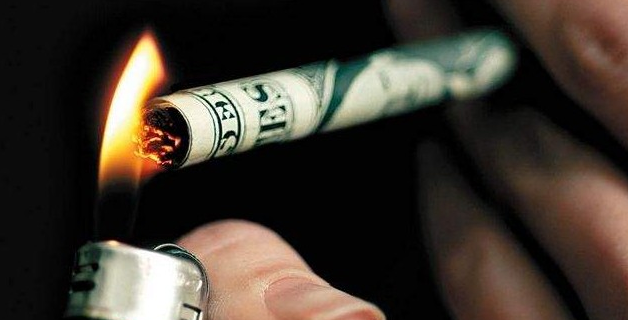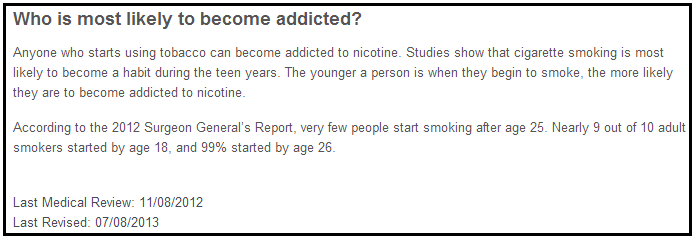
One of my good friend Chad came back town for the holidays after a tough semester of school abroad. At the dinner table, in between the laughter and chuckles, he suddenly got up and announced, “Guys, I’m heading out for a smoke break.”
I was absolutely dumbfounded. Now, Chad was a guy who got straight A’s in high school, full ride scholarship to school, and went on to do an doctorate degree. He never got into trouble and always struck me as a level headed and sensible person, which was why he actually got a scholarship to study abroad. So why would a rational person suddenly decide to take up smoking? I got up and followed him out.
“Since when did you decide to smoke?” I demanded.
“Since, everyone in Europe started doing it!” Chad chuckled. “You’d be a social outcast if you didn’t smoke!” He took a long puff and exhaled deeply.
I’ll have to admit, he did look pretty bad-ass with the cigarette between his fingers and letting the wind drift his smoke away.
“You want a puff?”
“No thanks, I’m OK…” I replied. I will admit, the thought of blowing smoke like James Bond did enter my head for a brief moment. However, the cost of addiction pulled me back into reality. I had never purchased a pack of cigarettes before but it must be expensive!
I did some quick research and found out that according to stats, the annual explicit cost of smoking is around $2500 spent on cigarettes. Where did this number come from? $2500/365 = $6.85 per day. This is roughly the cost of a pack of cigarettes across the U.S.
Holy crap! $6.85 per day for this habit is friggin expensive! Immediately, the gears in my brain started turning and I wanted to know the lifetime financial cost of this habit.
From cancer.org, majority of smokers started during their teenage/young adult years:

If we assume a young healthy person, such as Chad started at age 20, then over the 45 year period, using simple mathematics, it would amount to $112,500 (in real dollars).
Ok. That doesn’t sound like much for a lifetime’s worth of “stress relief” and “relaxation”, but what if that money could have been invested each year instead?
Each year, a smoker could have saved $2500 and that money could have been invested at, for argument’s sake, a stock giving 7% return annually. How much would that yearly $2500 contribution amount to?
The mathematical representation is:
{ [ ( $2500 x 1.07 + 2500 ) x 1.07 ] + 2500 } x 1.07 … …1.07
It is essentially:
{[(X * Y1 + X ) Y2 + X ] Y3 + X } Y4 … YX
where X = $2500 and Y = 1.07
This is a geometric series and the formula is:
= X (1-Y^n)/(1-Y^n)
So assuming he started at age 20 and he retires at age 67. Over the 45 year period, he could have invested:
2500 (1 – 1.07^45 ) / ( 1 – 1.07 )
2500 (1 – 21 ) / -0.07
2500 ( -20 / -0.07 )
2500 ( 285.71 )
= $714,285
Now, that, is an expensive habit to pick up. I didn’t have the heart to tell Chad that he potentially lost a comfortable retirement for taking up smoking.
Your friends in high school offer you a pack of cigarettes. Had you kindly refused, that single decision could have helped you retire very comfortably.
References:
Cancer.org